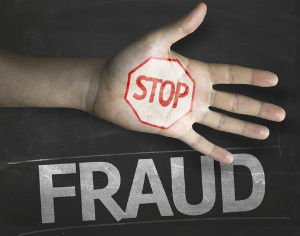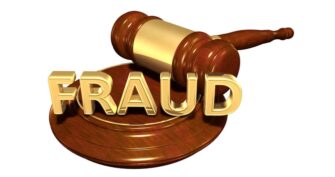Dependable False Claims Act Attorneys in New York - Let us fight for the justice you deserve

If you are aware of fraud being committed against New York State or New York City, you may be eligible to receive a monetary award for reporting the fraud.
Both the city and the state of New York have enacted a law known as the False Claims Act that allows private citizens to file a special kind of lawsuit (a qui tam or “whistleblower” suit) on behalf of New York against any person or organization that is defrauding the government.
Should any damages be recovered as a result of your qui tam lawsuit, you are eligible to receive an award of up to 30% of the total amount recovered. Employees who expose fraud by their employer against New York are also afforded certain job protections.
There are deadlines for filing a False Claims Act complaint, so it’s important that you promptly speak with an attorney if you have any knowledge that a hospital, health insurance company, medical device or drug manufacturer, school, contractor or any other entity is defrauding New York.
To discuss your case with a lawyer and find out whether you may qualify for a reward under the FCA, contact Belluck & Fox, LLP for a no-cost, no-obligation case review. Joe Belluck, the founding partner of Belluck & Fox, helped write the initial versions of New York City’s False Claim Act.
An Overview of the False Claims Act
Table of Contents
State and city False Claim Acts, including those in New York, are modeled on the United States (federal) False Claims Act, originally enacted during the Civil War under President Lincoln to combat fraud perpetrated by Union Army suppliers. The federal False Claims Act is, for the most part, used to fight procurement fraud (such as contractor bid-rigging or non-delivery of invoiced goods) and healthcare fraud (i.e. Medicare and Medicaid fraud).
New York City enacted its False Claims Act prior to New York State doing so, with Mayor Bloomberg signing the Act into law in 2005. New York State followed suit with its own False Claims Act in April 2007. You can read the New York City law here and the New York State law here.
Under the laws, any person or business that knowingly submits a false or fraudulent claim for payment to New York City or State is subject to a civil penalty and damages at triple the value of the actual fraud. The New York State False Claims Act, furthermore, is the only Act in the country to expressly cover tax fraud.
 Both laws allow any private citizen to initiate a qui tam action. One action (for example, an action involving contractor overcharges) can involve hundreds or even thousands of individual claims. The laws also allow the person who initiated a suit resulting in a favorable judgment or settlement to recover a qui tam award of 15-25% (if the government joins the case) or 25-30% (if the government does not intervene).
Both laws allow any private citizen to initiate a qui tam action. One action (for example, an action involving contractor overcharges) can involve hundreds or even thousands of individual claims. The laws also allow the person who initiated a suit resulting in a favorable judgment or settlement to recover a qui tam award of 15-25% (if the government joins the case) or 25-30% (if the government does not intervene).
Examples of New York Whistleblower Actions
To provide you with a clearer view of the False Claims Act in action—and how whistleblowers aid in the prosecution of fraud—here are a few examples of NY False Claims Act cases:
- CA, Inc., an Islandia, N.Y.-based computer company, agreed to pay an million multi-state settlement, including $700K to New York, for improper billing of local and state governments for software protection plans. CA double-billed 179 New York government organizations for annual service contracts—fraud that was brought to light by a former CA employee, who received $141,759 (20% of the New York recovery) for blowing the whistle.
- Doshi Diagnostic Imaging Services, P.C., as part of a $15.5 million state and federal false claims case, repaid New York .9 million to resolve allegations that the Long Island company submitted false claims to state Medicare and Medicaid programs for medically unnecessary diagnostic outpatient imaging services. Three whistleblowers received as their share of the recovery individual awards of $1.5 million, $1.07 million and $209,250.
- Acting on whistleblower information, New York Attorney General Eric T. Schneiderman filed a first-of-its-kind tax fraud case against wireless carrier Sprint in February 2014. The state is seeking back taxes from Sprint for allegedly underpaying sales tax dating back to 2005. The state is seeking nearly $400 million from the telecom company; the whistleblower would receive up to 25% of any money recovered by the government.
Quitam Cases
 “Qui Tam” is short for the Latin phrase qui tam pro domino rege quam pro siepse, meaning “he who is as much for the king as for himself”. Qui tam is a key provision of the False Claims Act which allows a private citizen to file a lawsuit in the name of U.S. Government for fraud or false claims by companies that do business with, or are reimbursed by the United States. In return for filing and pursuing a successful qui tam lawsuit, the law provides for a reward of 15-30 percent of the monies recovered.
“Qui Tam” is short for the Latin phrase qui tam pro domino rege quam pro siepse, meaning “he who is as much for the king as for himself”. Qui tam is a key provision of the False Claims Act which allows a private citizen to file a lawsuit in the name of U.S. Government for fraud or false claims by companies that do business with, or are reimbursed by the United States. In return for filing and pursuing a successful qui tam lawsuit, the law provides for a reward of 15-30 percent of the monies recovered.
Like similar whistleblower laws, the Qui Tam provision prohibits an employer from harassing or retaliating against an employee for attempting to uncover or report fraud on the federal government.
The False Claims Act qui tam law is sometimes known as the “Lincoln Law” because it was first enacted by President Lincoln during the Civil War. The law was revitalized and strengthened in 1986. In a qui tam or whistleblower case, a private individual or organization files a lawsuit on behalf of the government to recover damages from fraudulent activity that cost the government money. Cases of this type are filed by a “relator,” who is the person that learns and reports certain types of fraudulent acts that are being conducted against the government. The relator may file a complaint, under seal, which means that it remains confidential for a period of time.
Anyone can file a qui tam action alleging that a false claim has been submitted to the government. Types of false claims include overcharging the government, charging for services never provided, selling something and not delivering it, making false reports about the quality of a product, failing to properly test products, or any scheme intended to cheat, defraud, or steal from the government.

The False Claims Act provides protection to employees who are retaliated against by an employer because of the employee’s participation in a qui tam action. The protection is available to any employee who is fired, demoted, threatened, harassed or otherwise discriminated against by his or her employer because the employee investigates, files or participates in a qui tam action. This “whistleblower” protection includes reinstatement and damages of double the amount of lost wages if the employee is fired, and any other damages sustained if the employee is otherwise discriminated against.
The qui tam action must be filed in a U.S. District Court that has proper jurisdiction. The complaint must also be accompanied by a “written disclosure of substantially all material evidence and information the person possesses”. The main purpose for the written disclosure is to provide the government with enough information to properly investigate the claim in order to determine if it will join in the lawsuit. If the government joins in the suit, the Department of Justice (DOJ)will lead the prosecution of the case.
If the DOJ decides to join in the lawsuit, it controls the case and has the responsibility for prosecuting the action.
 When the DOJ decides not to join in a case, the relator has the right to prosecute the case and conduct investigations associated with the case. The DOJ may intervene in the action at any time.
When the DOJ decides not to join in a case, the relator has the right to prosecute the case and conduct investigations associated with the case. The DOJ may intervene in the action at any time.
Qui tam actions carry with them the potential for substantial monetary judgments being entered against the defendants. A portion of that award will go to the person who initiated the action. An experienced qui tam litigation attorney can analyze your case, and determine how much the likely award will be.
For more information on the False Claims Act and qui tam cases, you can visit the website of Taxpayers Against Fraud.
Think You Have a Case? Speak With Belluck & Fox, LLP – False Claims Act Law Firm
Whistleblowers provide a valuable service by bringing to light fraud that hinders effective governance and squanders taxpayer money. Experienced legal representation improves the chance that your case will be successfully resolved and your whistleblower recovery will be protected. A lawyer can also help to ensure that your employer does not take retaliatory action against you for filing a claim.
Before you blow the whistle, speak with the nationally-recognized New York City law firm of Belluck & Fox, LLP. During a free case review we’ll explain all of your legal rights and options as they pertain to the False Claims Act.